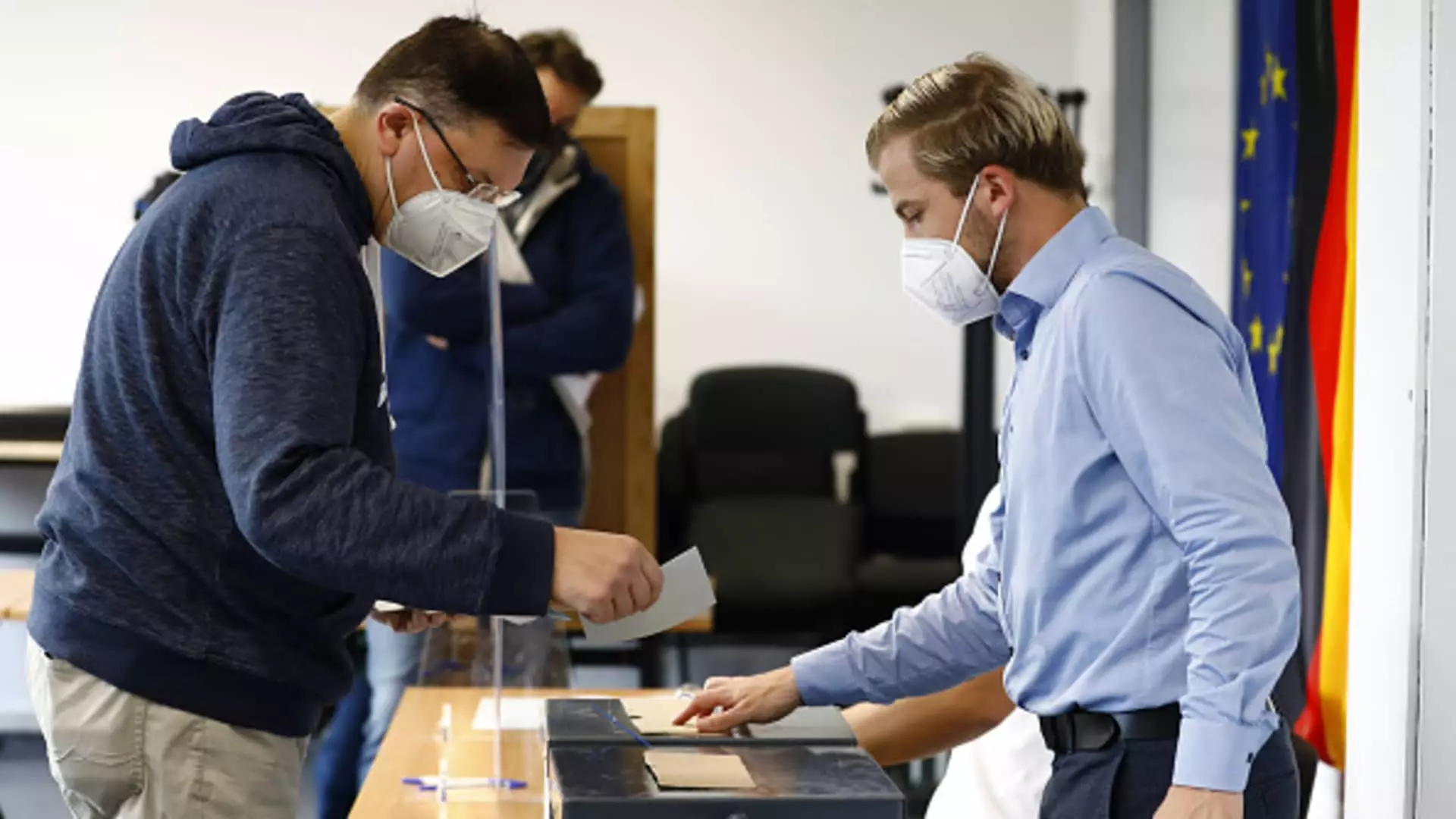The recent state elections in two eastern states in Germany have sparked concerns as the far-right Alternative for Germany (AfD) is poised to win a state election for the first time. In Thuringia, the AfD is leading in polls with 30%, while in Saxony they are neck-and-neck with the conservatives at 30-32%. If the AfD does win, it would be the first time since World War Two that a far-right party has the most seats in a German state parliament. This rise of the AfD highlights a shift in political landscape in Germany and raises questions about the future of democracy in the country.
Despite the AfD’s potential victory, it is unlikely that they would be able to form a state government due to their polling numbers falling short of a majority. Additionally, other parties are reluctant to collaborate with the AfD, making coalition building a challenging task. The emergence of another populist party, the Sahra Wagenknecht Alliance (BSW), further complicates the political scenario in these states. The BSW, founded by a former communist, shares similar anti-migration and eurosceptic views with the AfD, adding to the dilemma of coalition formation.
Concerns Over Immigration and National Identity
The support for the AfD and BSW can be attributed to concerns about immigration, euroscepticism, and national identity. Both parties have capitalized on issues such as the cost of living crisis, the Ukraine war, and immigration to garner support, especially in the former Communist-run East. A recent stabbing incident linked to Islamic State in Solingen has further fueled anti-immigration sentiments and criticism of the government’s handling of the issue. Leaders of these parties have emphasized the need to protect national identity and restrict immigration to preserve freedoms.
Political Fallout in Federal Coalition
The disappointing performance of the ruling coalition parties in the state elections reflects growing discontent with the federal government. The coalition, comprising ideologically diverse parties, has been plagued by infighting and struggles to maintain unity. A potential rout in the eastern states could exacerbate tensions within the coalition and have ripple effects on national politics. The growing influence of the BSW, with its socially conservative and economically left-wing stance, poses a threat to the center-left Social Democrats.
The division between the eastern and western states in Germany remains evident, more than 30 years after reunification. The lower party allegiance in the East, coupled with skepticism towards Germany’s democratic structures, highlights the lingering socioeconomic disparities between the two regions. Despite efforts to narrow the economic gap through investments in sectors like chipmaking and electric cars, the discontent among locals persists. The rise of far-right parties in the East underscores the need for addressing these underlying socioeconomic factors to bridge the East-West gap.
The state elections in Germany have brought to light the rising influence of far-right parties in the political landscape. The potential victory of the AfD in Thuringia and Saxony and the ascent of the BSW signal a shift in public sentiment towards more conservative and nationalist ideologies. The challenges of coalition building, concerns over immigration, and the East-West socioeconomic disparities underscore the complex issues facing Germany’s democratic governance. As the country heads towards federal elections, the outcome of the state elections could have far-reaching implications on the future of German politics.

Leave a Reply